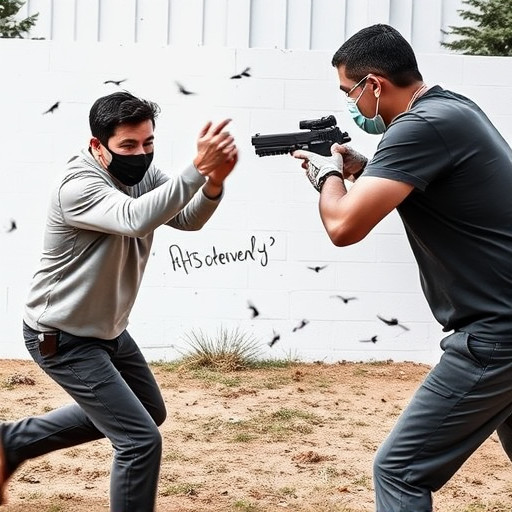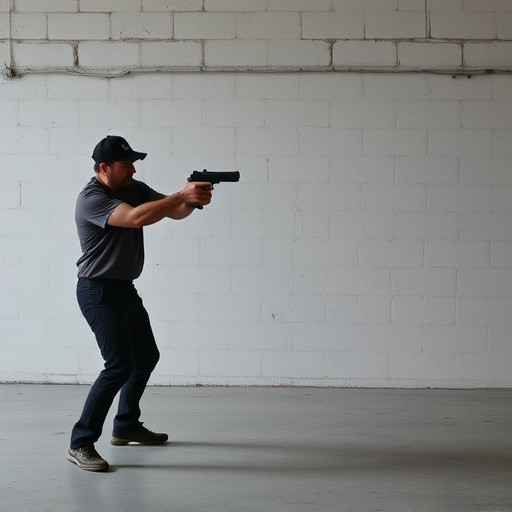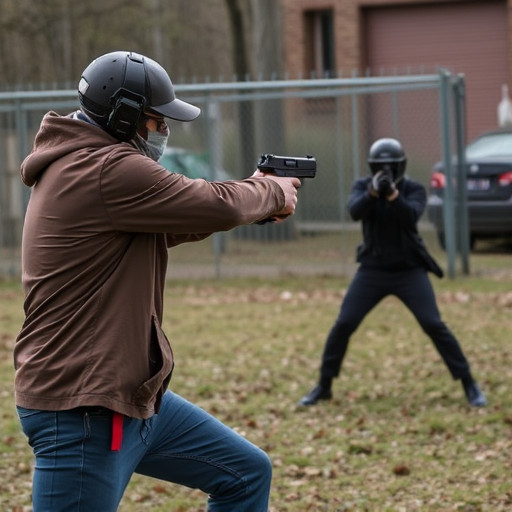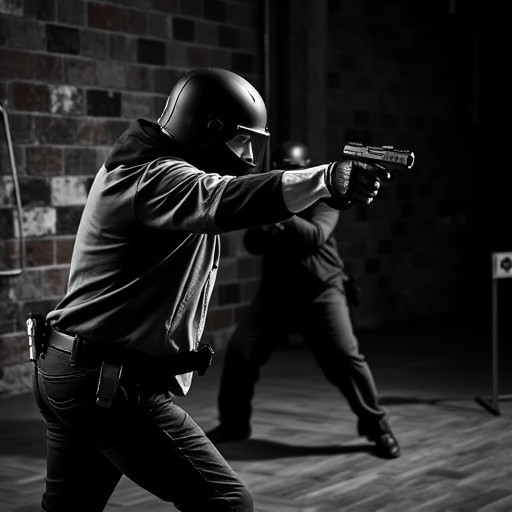Understanding state regulations on Taser ownership is essential before considering heavy-duty stun batons for security. Each US state has unique laws governing ECDs, with varying age restrictions, background checks, and training requirements. Some states allow unrestricted purchase by responsible adults, while others mandate permits and extensive training. Prospective buyers must research these regulations to avoid legal issues like fines or device confiscation, ensuring safe usage of heavy-duty stun batons in compliance with local laws.
In today’s world, civilian taser ownership is a topic of growing interest. Understanding state laws regarding tasers goes beyond mere curiosity; it’s crucial for personal safety and security. This article dives into the intricacies of acquiring heavy-duty stun batons, exploring key differences in state regulations and the impact of civilian taser ownership. By examining both pros and cons, readers can make informed decisions about their right to self-defense and security measures like heavy-duty stun batons.
- Understanding State Regulations on Civilian Taser Ownership
- Legal Requirements for Acquiring Heavy-Duty Stun Batons
- Key Differences in State Laws Regarding Taser Use
- The Impact of Civilian Taser Ownership: Pros and Cons
Understanding State Regulations on Civilian Taser Ownership

Understanding State Regulations on Civilian Taser Ownership is a crucial step before considering the acquisition of a heavy-duty stun baton for security purposes. Each state in the US has its own set of laws and regulations governing the ownership, possession, and use of tasers by civilians. These rules can vary widely from one jurisdiction to another, influencing decisions on who can legally carry a taser, under what circumstances, and with what restrictions. For instance, some states allow any responsible adult to purchase and carry a taser for personal protection, while others impose stringent requirements like completing a certified training course or obtaining a special permit.
Delving deeper into these state regulations is essential when exploring the potential of heavy-duty stun batons as a security measure. The rules often address issues like age limitations, background checks, and waiting periods for purchases. They may also dictate specific types of tasers that are legal to own—some states differentiate between electronic control devices (ECDs) designed for law enforcement and those intended for civilian use. Understanding these nuances ensures compliance with the law while harnessing the benefits of taser technology for enhanced security.
Legal Requirements for Acquiring Heavy-Duty Stun Batons

In many states, acquiring heavy-duty stun batons for security purposes is subject to specific legal requirements. These requirements often include obtaining a permit or license from relevant law enforcement agencies, passing background checks, and attending training sessions on the safe use and handling of such devices. The regulations vary widely across different jurisdictions, with some states allowing unrestricted ownership while others impose strict controls.
Understanding these laws is essential for individuals seeking to invest in heavy-duty stun batons for personal security or business protection. Failure to comply with local regulations can result in legal consequences, including fines and confiscation of the device. Therefore, prospective buyers should research their state’s specific requirements and ensure they meet all necessary criteria before making a purchase.
Key Differences in State Laws Regarding Taser Use

In the United States, state laws vary significantly when it comes to regulating civilian taser ownership and use, creating a patchwork of regulations across different jurisdictions. These differences are particularly notable in the criteria set for purchasing and carrying stun guns, often referred to as heavy-duty stun batons for security purposes. Some states have relatively lenient requirements, allowing individuals with minimal training to own tasers, while others implement stricter measures, demanding extensive training and specific licenses.
Key factors influencing these disparities include local crime rates, existing firearm regulations, and public safety considerations. States with higher violent crime statistics might opt for more stringent taser laws to curb potential misuse, whereas areas with lower crime rates could adopt more liberal policies, emphasizing personal protection. As a result, prospective taser owners must thoroughly research the specific laws in their respective states to ensure compliance and safe usage of these powerful tools, especially when considering heavy-duty stun batons for security enhancements.
The Impact of Civilian Taser Ownership: Pros and Cons

The debate surrounding civilian taser ownership highlights a delicate balance between personal safety and public concern. Proponents argue that allowing law-abiding citizens to carry heavy-duty stun batons for security purposes can deter crime and provide an additional layer of self-defense, especially in high-risk neighborhoods or during unexpected threats. This view emphasizes the potential for citizens to protect themselves and their loved ones, reducing the reliance on law enforcement response time.
However, critics raise valid concerns about misuse and accidental deployments. Unregulated ownership could lead to increased risk of harm, not only to the user but also bystanders. The impact of a taser can be unpredictable, and without proper training, individuals might unintentionally cause severe injuries or even fatalities. Moreover, allowing civilians to carry such powerful tools may contribute to a culture of hyper-aggression and increase potential for escalation during conflicts.
In conclusion, understanding the varying state laws regarding civilian taser ownership is crucial when considering the acquisition of heavy-duty stun batons for personal security. While some states have relatively relaxed regulations, others enforce stringent requirements. Navigating these laws ensures responsible ownership and highlights the importance of staying informed about one’s rights and responsibilities. The balance between individual protection and public safety is a delicate symphony that varies across state lines, ultimately shaping the landscape of civilian taser ownership.
